Poetry and Flowers Against the War – Digest of Russian Protests
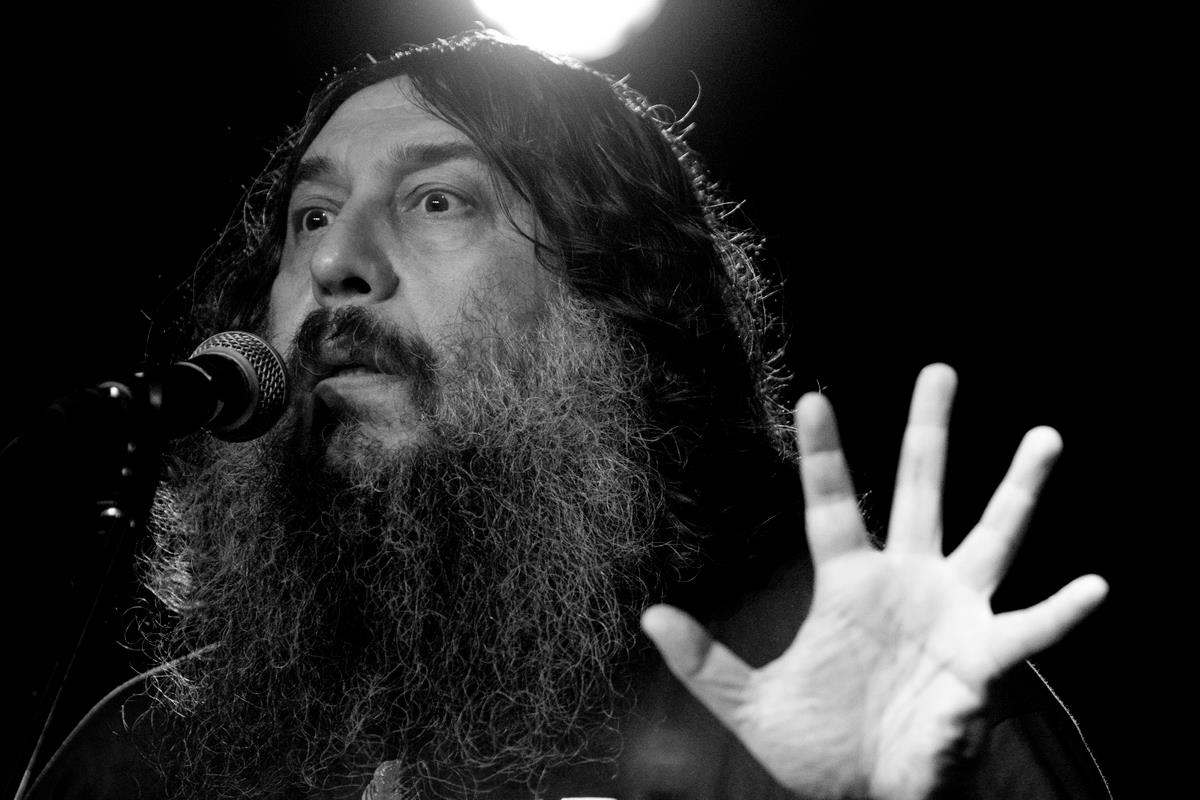
‘I thought / that I was / a Russian / but this maniac / appears to also / think he is’ The January issue of the Samara literature journal ‘Volga’ published anti-war poetry by German Lukomnikov. While poets are protesting with words, ordinary people do it with flowers.
Memorials to victims of the missile attack on a Dnipro tower block
46 Ukrainians died as the result of a Russian missile attack on a tower block in Dnipro, six of them children. In memory of the victims, Russians began creating spontaneous memorials. In at least 15 cities, people brought flowers and children’s soft toys to monuments linked with Ukraine (to LesyaUkrainka; Taras Shevchenko and others). Monuments to victims of political repression were also chosen as places for such remembrance.
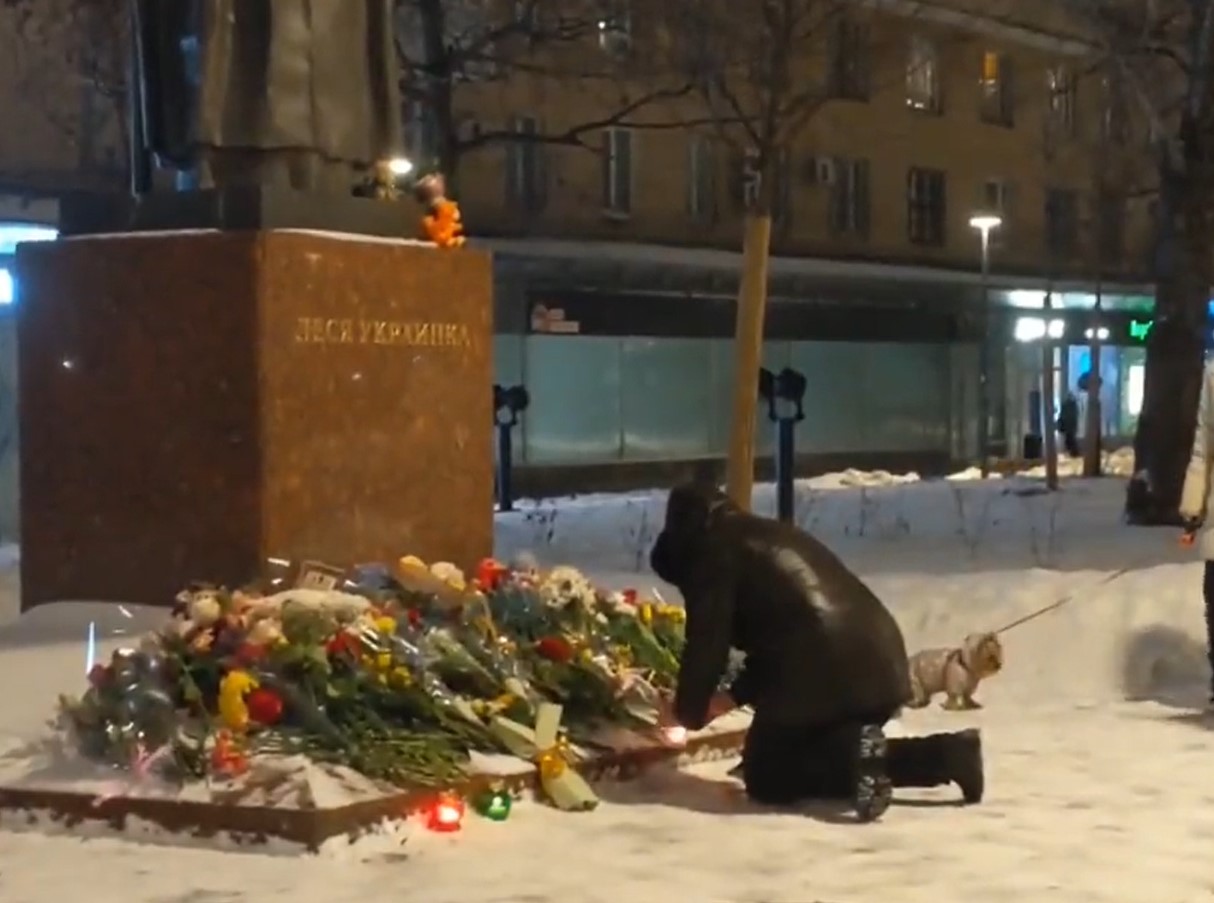
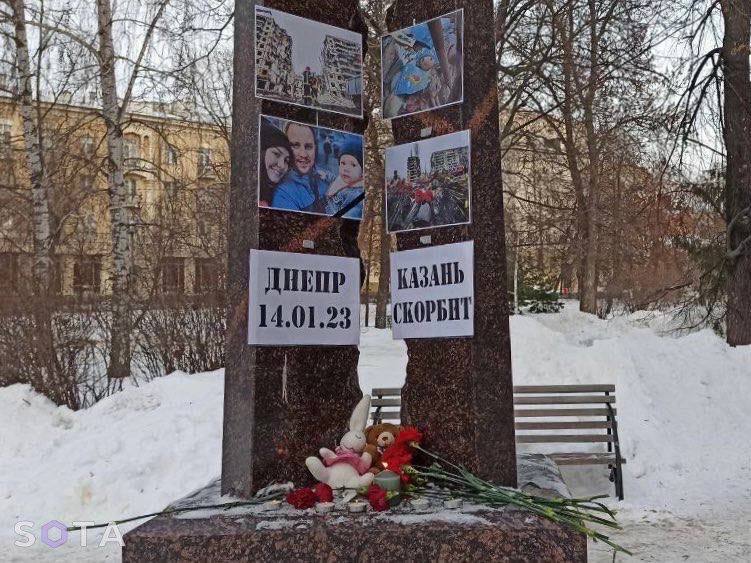
In many cities, state bodies and provocateurs tried to obstruct these memorials. In Belgorod municipal workers dismantled the spontaneous memorial “on the administration’s orders”;
On 17 January four people were detained near the monument to LesyaUkrainka in Moscow. After a police van was positioned at the site, people created a new memorial at the monument to Nikolai Gogol on Nikitsky Boulevard. Two other spontaneous memorials also appeared at the monument to Taras Shevchenko and to the‘Commonwealth’ statue. Police were permanently on duty near the monument to LesyaUkrainka and prohibited people from photographing the memorial. One said the following: “I know that you have the right to take a photograph, I don’t understand myself why you can’t, but those in charge said to not allow it, and therefore delete the photo”.
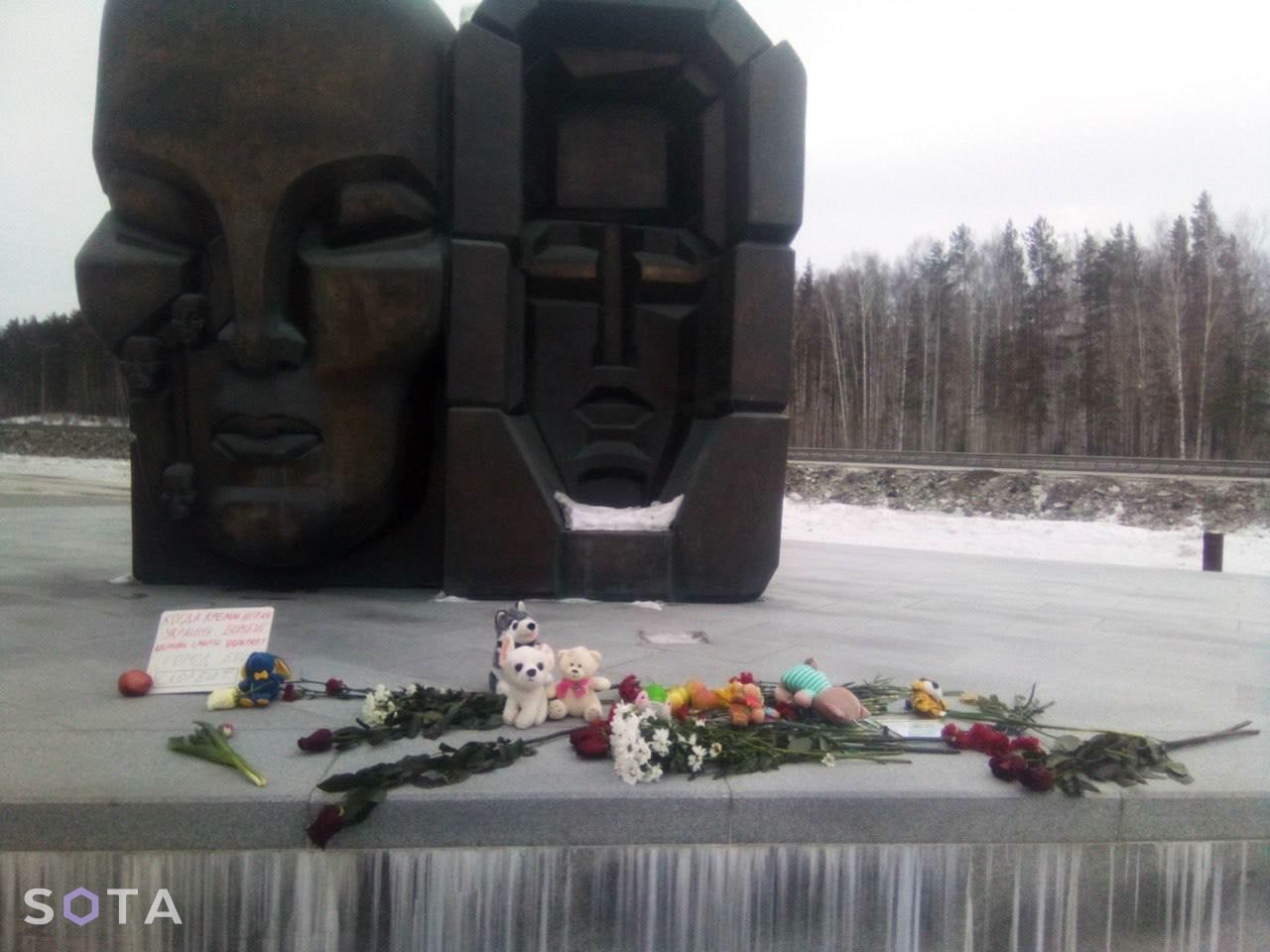
On 18 January, at the monument a provocateur was detained after he tried to steal the soft toys left at the spontaneous memorial by Muscovites.
On 21 January, unidentified individuals destroyed the memorial in St Petersburg, however by the next day it had appeared again.
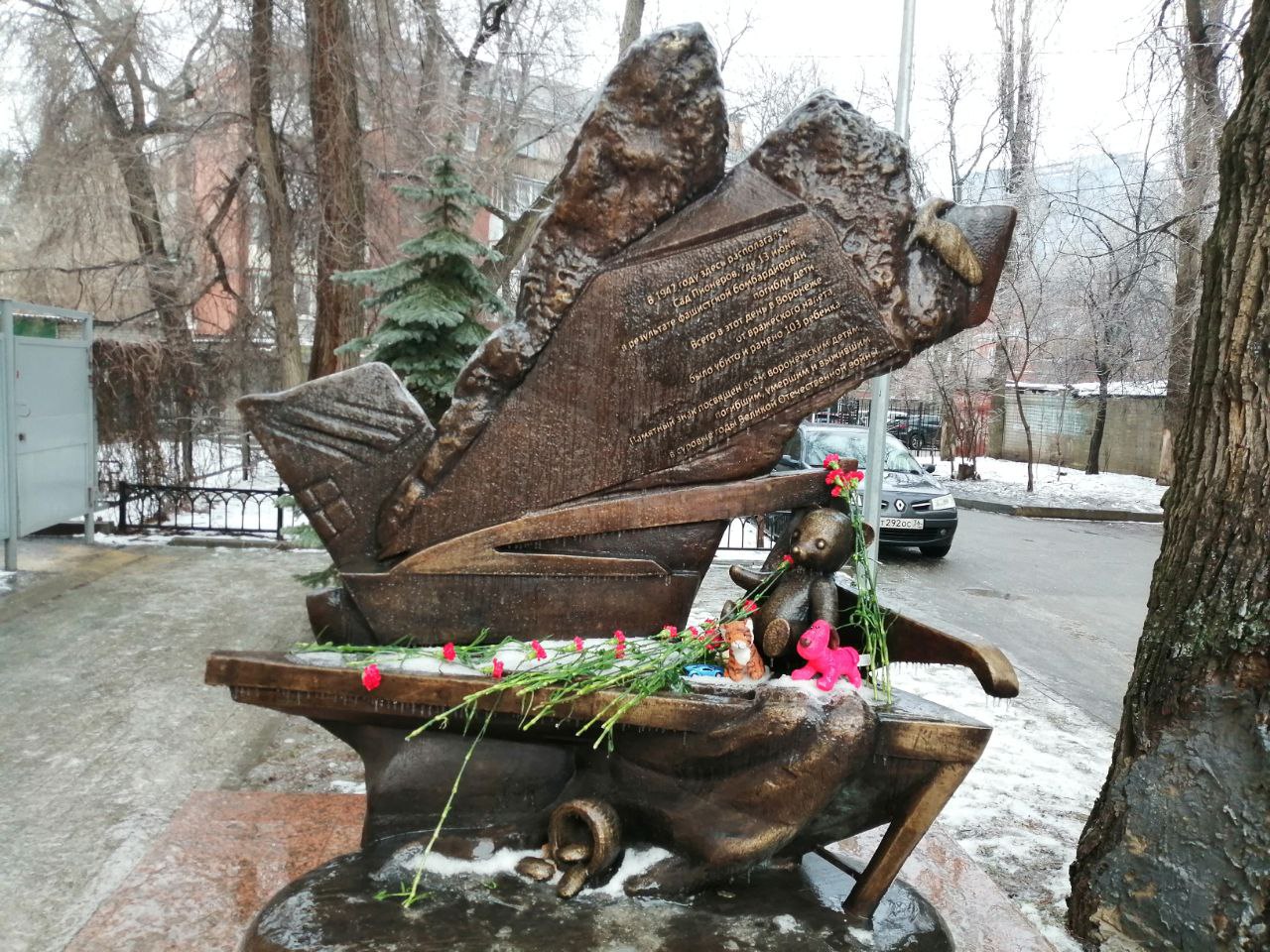
Despite such heavy-handed measures, remembrance of the victims of the attack on Dnipro continued throughout the week. Memorials appeared in many cities. The flowers would be thrown into rubbish bags and taken away during the night, with new ones being brought from the following morning, with all of this continuing for over a week. There were also cases where people tried to oppose the destruction of a memorial. In Krasnodar, for example, a man complained to the police that the flowers at the monument to Taras Shevchenko had disappeared.
Single-person pickets
21 January: a resident of Barnaul held a single-person picket with a ‘placard’ slightly larger than a business card, reading ‘No to war’ and ‘Freedom for political prisoners.’ The man was detained.
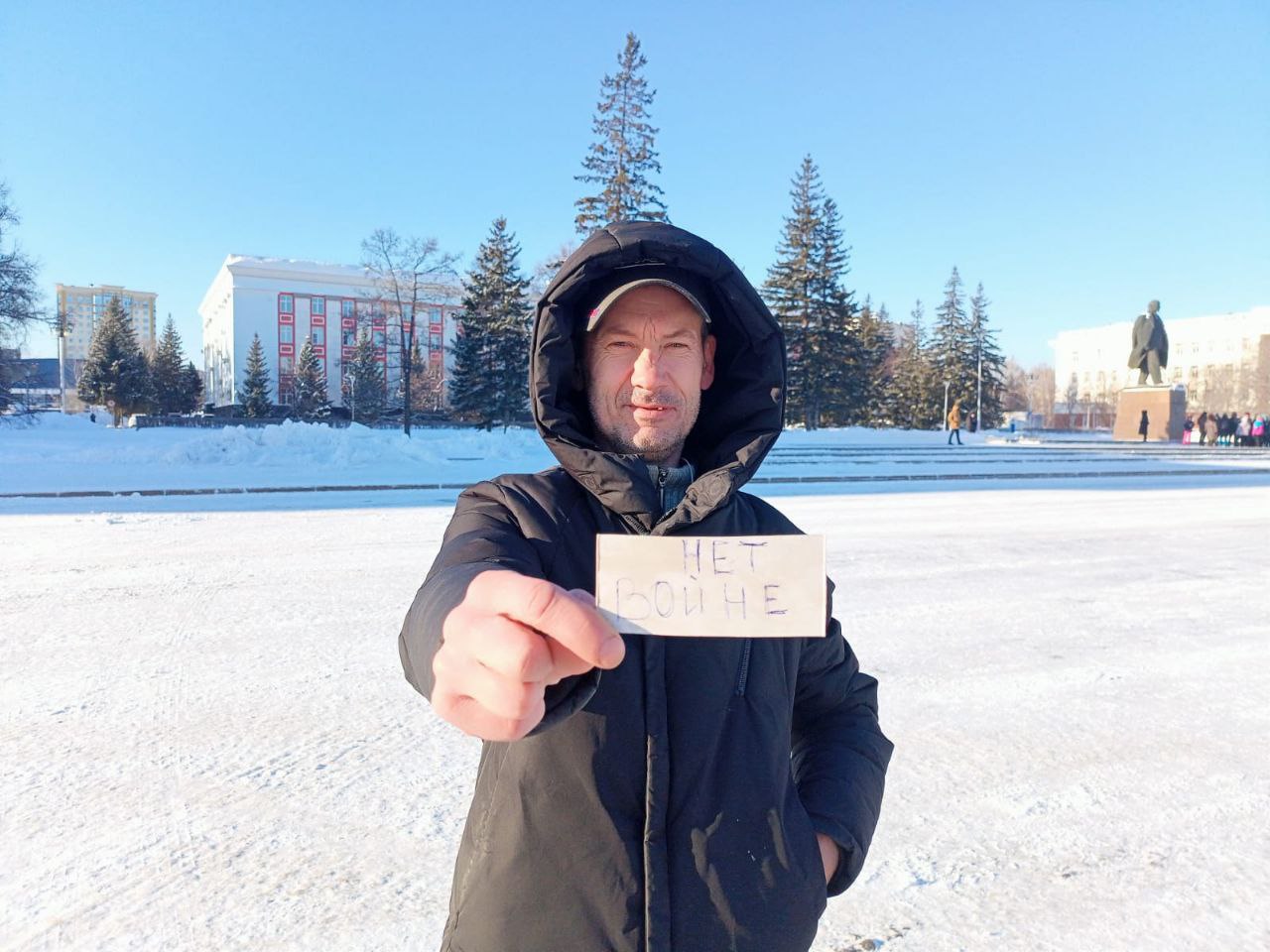
*
In St. Petersburg on 17 January, there was a metro picket at the entrance to Kupchino Station.
*
In Moscow, activist Yekaterina Varenyk held a single-person picket at the monument to LesyaUkrainka where, on 14 January, a spontaneous memorial appeared to the victims of the bomb attack on a tower block in Dnipro. The young woman was detained.
*
In Moscow, at the St Basil’s Cathedral near the Kremlin, an activist held a single-person picket with a placard reading: “Putin! You should fight corruption and poverty, not Ukraine, NATO and Navalny”.
*
In Yekaterinburg the police detained activist YuliaBloshchinskaya for coming out on a single-person picket with a placard ‘No to war’. She was released a few hours later after a protocol was drawn up under the article on ‘discrediting the Russians army’.
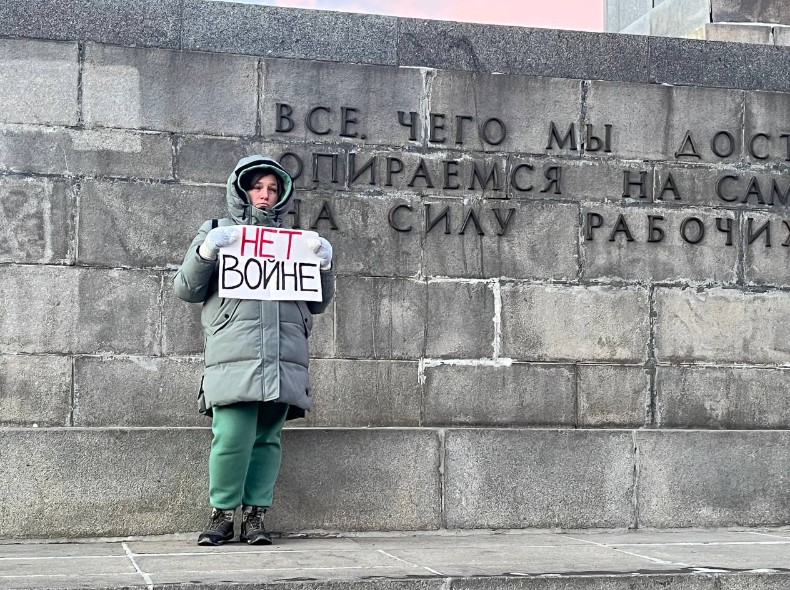
Poems (and not only) against the war
The January issue of the Samara literature journal ‘Volga’ published anti-war poetry by German Lukomnikov. The journal is published six times a year, with t print run of 1,000, as well as in electronic form. Here are some of the poems.
***
Arise, huge country,
Arise for mortal battle.
With a fascist dark force,
With ourselves, damn it.
[the first three lines are directly taken from the famous Soviet song ‘Holy War’ about the war against the Nazi invaders].
***
I thought
that I was
a Russian
but this maniac
appears to also
think he is
15.11.22
*
Back at the end of 2022, the Ivan Limbakhpublishing company published an anthology of anti-war poems by poets, many of whom are in Russia. ‘Poetry of recent times’. The anthology is sold in many bookshops in St Petersburg, Moscow and other cities. ‘Poetry of recent times’ is a documentary testimony of the current literary process at the breaking point of Russian culture when poetic texts, like flags on a map, mark out the scale of the humanitarian catastrophe. Written from February through July 2022, the poems are a specific type of chronicle for understanding the collective trauma via artistic means. More than one hundred authors express their thoughts about modern history, about responsibility for what is happening and about the metamorphosis of the Russian language in circumstances of a changing reality.” And “This is not a symphony, but a ritual lament, the tragic choir of sirens (in all the means of the latter word)”
*
Dmitry Nazarov, a theatre and film actor, recited and taped his — tragic and tragic-satirical - poems against the military aggression in Ukraine on video. During the video his wife, the actress Olga Vasiyeva sometimes appears. The video was posted, for example, on Nazarov’s YouTube channel. In January 2023, the artistic director of the Moscow Art Theatre Konstantin Khabensky fired both Dmitry Nazarov and Olga Vasilyeva.
Protest on a popular website
The website Briefly, which provides a brief summary of books, posted hearts in the colours of the Ukrainian flag with the message “He who defends his own home is right”. The image is at the end of each page of the site. The site is visited everyday by thousands of school and university students and is the main Russian-language source of brief book summaries.
The report was prepared by Memorial volunteers from information in SOTA, OVD-Info; 7x7 Horizontal Russia; Feminist Anti-War Resistance; Aktivatika and other sources.





